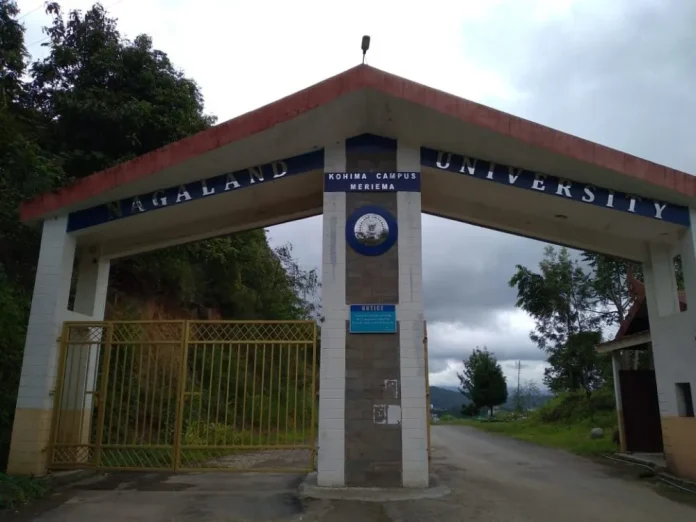Kohima, August 4: Nagaland University has launched its first-ever interdisciplinary Master of Arts (MA) programme in Language and Culture, marking a significant milestone in the state’s academic landscape.
The programme, which officially commences on August 5 with an inaugural cohort of 20 students, is being offered by the Centre for Naga Tribal Language Studies. It is designed to promote the rich linguistic and cultural traditions of the Naga people while equipping students with interdisciplinary skills applicable across academic and professional fields.
“This marks a historic milestone as the first interdisciplinary master’s degree of its kind introduced by our university,” said Prof. Jagadish Kumar Patnaik, Vice-Chancellor of Nagaland University. “The programme is a timely and significant initiative aimed at preserving, promoting, and advancing the rich linguistic and cultural heritage of the Naga people. It reflects our continued commitment to academic excellence, inclusivity, and the advancement of indigenous knowledge systems.”
The two-year, four-semester curriculum integrates disciplines such as linguistics, anthropology, literature, and cultural studies. In alignment with the National Education Policy (NEP) 2020, the course promotes holistic, interdisciplinary learning and allows graduates to be eligible for UGC-NET in Linguistics, Folk Literature, and Tribal and Regional Language.
Dr. Yanbeni Yanthan, Assistant Professor at the Centre, highlighted the programme’s contemporary relevance: “The course aims to remain relevant to the growing challenges of the 21st century—especially in terms of social impact, grassroots policy-making, language revitalisation, and the preservation of lesser-studied indigenous cultures.”
Graduates of the programme are expected to find opportunities in teaching, research, digital archiving, language policy, consultancy, and roles within the development sector.

